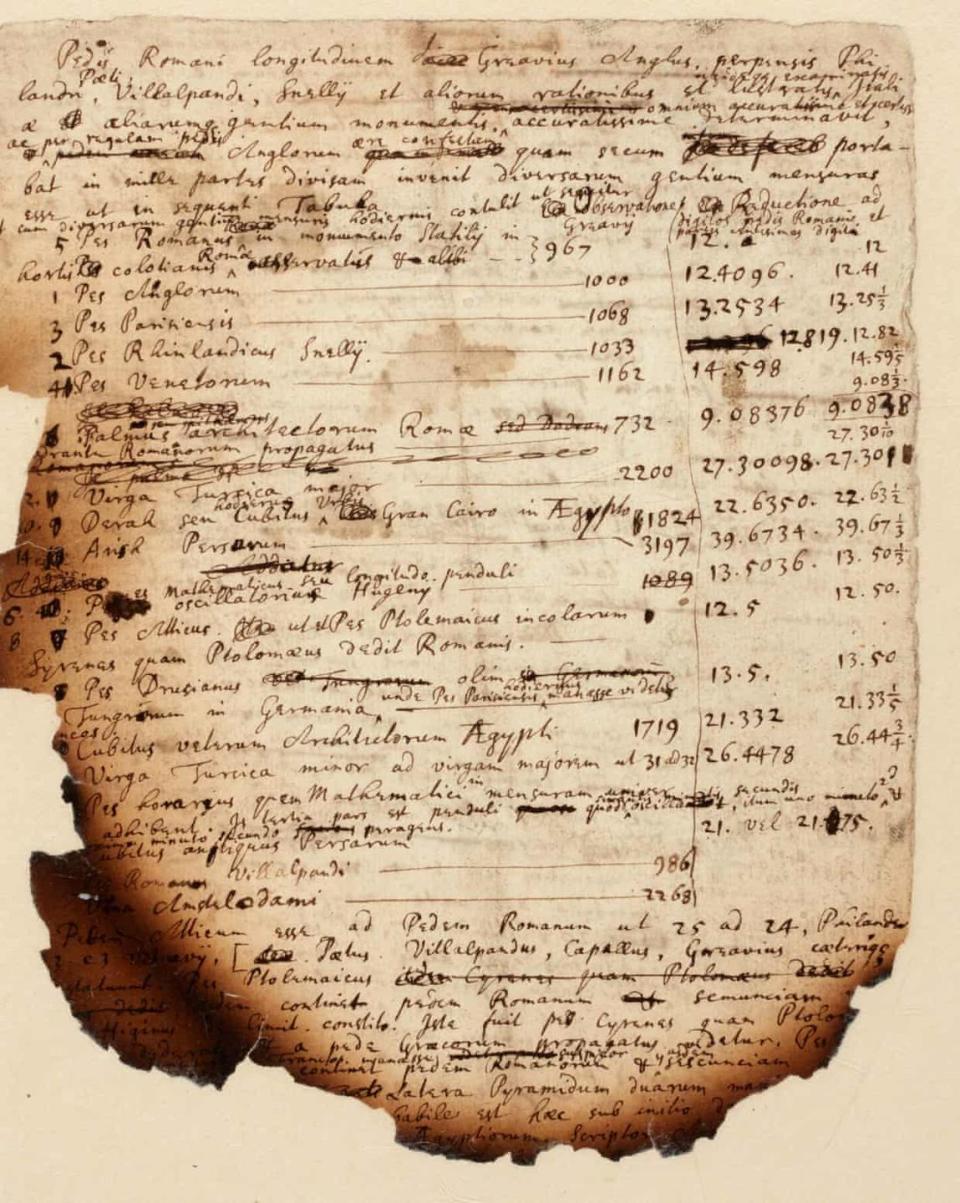Isaac Newton Believed the Pyramids Revealed the Timing of the Apocalypse
Sir Isaac Newton believed the pyramids at Giza held the key to the end of the world.
Pyramidology is the broad pseudoscientific study of the "secrets" of the pyramids.
Newton faced religious persecution for combining Christianity and pyramidology.
Soon, a set of obscure notes by foundational physicist Sir Isaac Newton will be auctioned at Sotheby’s. Yes, Newton “discovered gravity” in the popular imagination, but it’s his obsessive interest in pyramidology that shows in the previously undiscovered notes.
🤯Get unlimited access to the weird world of Pop Mech.
Like many people throughout history, Newton believed the pyramids in Egypt had spiritual and metaphysical significance in some way, and he studied them for years to try to reveal their “secrets.” The Guardian has more:
Newton was trying to uncover the unit of measurement used by those constructing the pyramids. He thought it was likely that the ancient Egyptians had been able to measure the Earth and that, by unlocking the cubit of the Great Pyramid, he too would be able to measure the circumference of the Earth.
He hoped that would lead him to other ancient measures, allowing him to uncover the architecture and dimensions of the Temple of Solomon—the setting of the apocalypse—and interpret the Bible’s hidden meanings.
It’s easy to reverse engineer a history where people like Newton were so-called pure scientists—untroubled by religious politics, pseudoscience, and other areas we don’t consider part of science today. But for thousands of years, the most rational scientists were still grappling with complicated problems that made it hard to rule out these more extreme theories. Without cell or atomic theory, for example, how could they conclude that miasma theory and the classical elements weren’t accurate?
All this is to say that even Newton was deep in his pseudoscience cups, studying alchemy and searching for esoteric meaning in different places. The pyramids of ancient Egypt, specifically the most photogenic and iconic batch at Giza, have always been a magnet for esoterica. In fact, the field of pseudoscience speculation about the pyramids is so large that, like ufology, it has its own name: pyramidology.
For Newton, pyramidology related to his interest in alchemy and even his underlying Christian beliefs. He thought the pyramids held secrets to the details of the specific Christian apocalypse detailed in the book of Revelations. And during Newton’s lifetime, mixing the default Christian beliefs with science or pseudoscience was verboten. Even though his research was directly related to how fervently he believed in the Bible, he had to hide these studies from everyone.

The book of Revelations is a drastic tonal and subject matter departure from the rest of the Bible books that precede it, and it’s stuffed with symbolism and numbers that have intrigued scholars for centuries. They’ve considered the puzzling book to be literally a puzzle, one whose solution could save the world. This is where Newton, too, found that he was seeking complex answers.
Why are the pyramids involved in this story? Well, for a similar reason. The pyramids are such a staggering human achievement, surrounded by the rich cultural history of the ancient Egyptians who built them, that they became a magnet for western European exoticist beliefs.
People like Newton decided Egyptians had secret, esoteric knowledge that had been lost. They looked at the pyramids as a living puzzle the same way Revelations was, with elements that represented a code they believed they saw.
People see patterns everywhere as part of what makes the human brain so powerful and special, and for Newton, it was much less clear that some patterns were pseudo rather than science. Indeed, some lucky auction buyer will get to read all about Newton's pyramidologist ideas up close.
Now Watch This:
You Might Also Like
